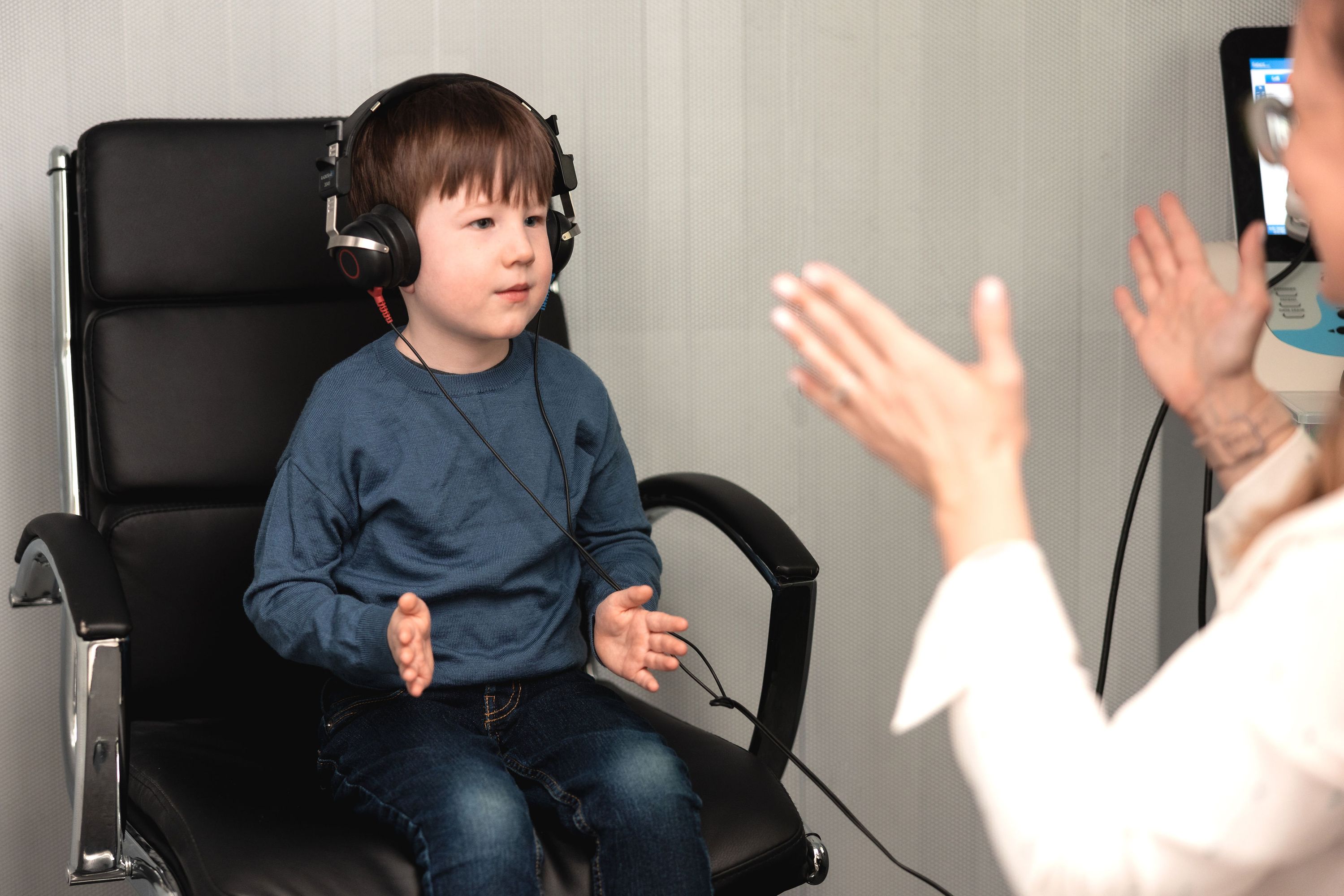Hearing Loss & Prevention
The Munk Difference

Hearing loss & prevention
Counselling on Hearing Loss
At Munk, we recognize the importance of education when it comes to hearing loss. We take the time to counsel our patients on the type of hearing loss that is present (e.g. sensorineural, conductive or mixed) and are happy to address any questions you might have.
As a leading hearing clinic in the Toronto area, we take great pride in providing each patient with the attentiveness and care they deserve. Whether you are currently dealing with hearing loss or believe prevention is the best course of action, we have the services you need to overcome the difficulties. Contact us for more information today!
Hearing Loss Prevention
Hearing loss prevention is important. An audiologist can help you to determine which situations require hearing protection and can make recommendations according to your needs.
Concerned that your hearing is at risk? Excessive noise exposure can damage your hearing. If you think that you are exposed to too much noise through your occupation or recreational activities, we can help by counselling you on noise reduction techniques and by recommending custom earplugs (if applicable).
Hearing Assessment
At Munk Hearing Centre, we provide comprehensive diagnostic hearing assessments for all of our patients.
There is no charge for this service as hearing tests are covered by OHIP (please bring a referral from your physician if the service you are requesting is a hearing test only).
What Is Included?
Otoscopy
We examine your ears, including the external ear canal and the eardrum, to look for signs of blockages, such as earwax, as well as ear-related problems that might require medical follow-up like ear infections.
If significant earwax is present, the audiologists at Munk have access to medical-grade microscopes and suction devices for removing it.
Immittance/Auditory Reflexes
We use a machine called a tympanometer to assess how your eardrums are moving. When an eardrum is too floppy or too stiff, it can indicate certain middle ear problems that usually require medical follow-up.
We may also play loud sounds in your ear to assess acoustic reflexes.
Pure-Tone Audiometry
This is the step that people most commonly expect when they come in for a hearing test. We play a series of beeps/tones and ask you to respond when you hear one. This way we can determine your hearing thresholds for each ear individually, across the range of frequencies/pitches that are important for speech understanding.
We use the results of this test to establish the severity and type of hearing loss. A hearing loss can be the result of damage to the inner ear and/or auditory nerve (sensorineural hearing loss), problems with the middle ear (conductive hearing loss), or both (mixed hearing loss).
Speech Testing
This part of the assessment is divided into two main parts. During the first part, you will be asked to repeat words as we vary the loudness. The purpose is to establish the softest level at which you are consistently able to repeat the words back correctly.
During the second part, we measure your accuracy when repeating words at a comfortable listening level. We also complete tests to establish your most comfortable listening level for speech (MCL), as well as your uncomfortable listening level (UCL; the maximum level you can listen to sounds before they become uncomfortably loud).
Other Tests
As an expert hearing clinic with locations in Toronto General Hospital and Uptown at Yonge & Lawrence, we have other tests we can use if need be. At the discretion of the audiologist, other tests may be completed to better understand your individualized needs. An example of this is the hearing in noise test (HINT), which is used to evaluate your ability to function outside of a quiet environment.
To Book with us
Please call our Munk Hearing Centre reception desk at 416-340-5530 to book your Hearing Aid Evaluation or to request an appointment.
